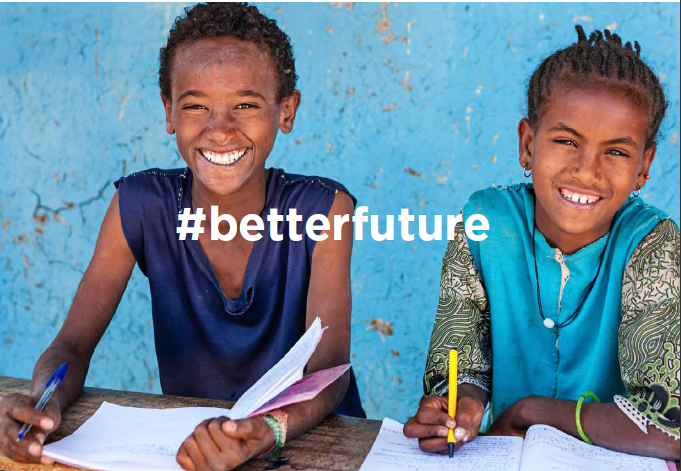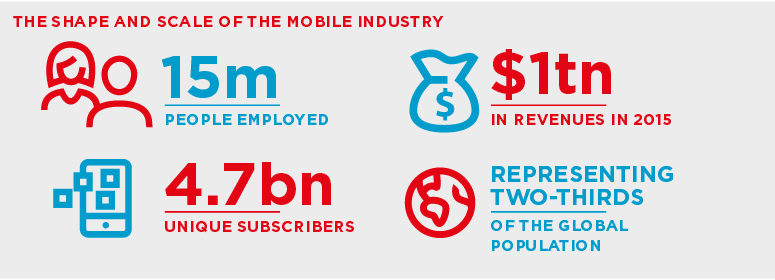One year ago, in September 2015, the United Nations published the new sustainable development agenda which included 17 Sustainable Development Goals (SDGs). These ambitious goals seek to deal with the main global challenges our world is facing, and to do so the United Nations not only called on the participation of Governments and International Organisms, but expanded its focus to the active participation of civil society and the private sector.
Within this context, the GSMA, an organization that encompasses the main telecommunications operators in the world and one of the most important actors in the technological industry, backed by all of its members assumed the challenge of leading and promoting the goals proposed by the United Nations thus becoming in February 2016 the first industry association to formally support the new sustainable development agenda for a #BetterFuture.
In February 2016, GSMA became the first Industry Association to formally support the New Sustainable Development Agenda
One year later, in September 2016 and coinciding with the United Nations General Assembly celebrated in New York, the GSMA published the first report regarding the mobile industry’s impact in the achievement of the Sustainable Development Goals. The goal of this report is to demonstrate the transformative effect of the mobile industry on society and the economy, as well as to establish a point of reference from which the mobile industry can assess the success of its contribution to the goals.
Some aspects that stand out in this report are, for example:

In addition to the report, the GSMA in collaboration with the United Nations launched a mobile application aimed at making the general public aware of these goals, facilitating its participation in initiatives and projects that have positive impacts. And maybe what’s most important, the GSMA published the main commitments that the industry is willing to carry out with the intention of accelerating the achievement and progress of these goals by the year 2030:
- To create a line of work with the United Nations focused on identifying the most critical areas where the mobile industry can act.
- To promote the development of tools and processes to aid in emergency situations, with special emphasis on the Humanitarian Connectivity Charter which has already been signed by some of the main operators in the world, among them Telefónica.
- To implement a program in cooperation with the United Nations Global Compact aimed at identifying and evaluating the advances of the mobile industry in the achievement of the SDGs.
- To use the communications capabilities of the industry to promote the development of projects which seek to achieve the Development Goals in other industries and civil society.

In addition to the public commitments, and according to what is indicated in the GSMA report, among other aspects the industry is committed to invest in the creation of digital education solutions, to seek solutions that allow underprivileged populations to have access to the Internet, to bring connectivity to remote regions where there is currently no mobile service, or to develop IoT/M2M solutions that the environment to be managed and monitored.
Furthermore, different challenges present themselves as the industry develops, challenges such as privacy and the protection of information, electronic waste, and the growing energy consumption as a result, in part, of the exponential growth of the demand and use of mobile data. As such, progress in this area is part of the commitment that the mobile industry assumes regarding the SDGs, the purpose of the industry, and its place in the world.

The importance of these goals is worth emphasising, as are the effort and work that the main telecommunications operators, among which Telefónica stands out, are doing to achieve, accelerate, and promote the development of these goals. More than any other, the mobile industry has the capability to facilitate the achievement of these goals.
With more than 4,700 million people connected all over the world, the mobile industry has widely demonstrated its ability to transform cities, empower people, open the doors of education, and make this planet a more sustainable place.






